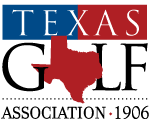Local Knowledge
November 2023
REVISIONS COMING TO WORLD HANDICAP SYSTEM™ IN 2024
The USGA and The R&A recently announced the first update to the World Handicap System™ (WHS™) as part of an ongoing review of the Rules of Handicapping™ and Course Rating System™ with a continued emphasis on accuracy, consistency and equity. The latest revisions will go into effect beginning January 1, 2024.
Many countries have seen significant increases in the number of scores being submitted for handicapping purposes since the WHS was introduced in January 2020, reflecting golf’s broadening appeal. More than 100 million scores have been posted each year, unifying millions of golfers through a standard measure of playing ability. The 2024 update leverages the performance data gathered from around the world, in addition to feedback received from many of the 125 countries now using the system.
Significant updates to the WHS include:
– Inclusion of Shorter-Length Golf Courses Within the Course Rating System: The overall length requirements for Course Rating in the WHS will be significantly reduced. A set of tees on an 18-hole course may be as short as 1,500 yards [1,370 meters] to be eligible for a Course Rating and Slope Rating®, and a set of tees on a 9-hole course may be as short as 750 yards [685 meters]. This change is intended to expand the WHS to thousands of shorter length courses, including par-3 courses, and enable more golfers to obtain and use a Handicap Index.
– Use of an Expected Score for a Hole Not Played: Improvements have been made to the method used to handle holes not played, which will now be based on a player’s expected score rather than a score of net par. This new method will produce a 9-hole or 18-hole Score Differential that more accurately reflects a player’s ability. As golfers across the world are playing more 9-hole rounds, an expected score can also be used to convert a 9-hole round into an 18-hole Score Differential. For some countries, this means that 9-hole scores will be considered in the calculation of a player’s Handicap Index immediately after the day of play, rather than waiting to combine with another 9-hole score.
– Playing Conditions Calculation Adjustments Made More Frequent: The Playing Conditions Calculation (PCC) has been modified to increase the likelihood of an adjustment for abnormal playing conditions. National associations were given discretion, beginning in July 2022, to introduce this revision within their computation platforms, which will be complete by April 1, 2024.
– Enhanced Guidance on Conducting a Handicap Review: The role of the Handicap Committee is vital to the success of the WHS and the Rules recommend that a Handicap Review is conducted regularly, or at least once a year to ensure a Handicap Index® remains reflective of a player’s ability. New reporting tools have been developed that national associations can incorporate into their handicapping software to assist Committees in conducting the review process effectively and consistently.
To learn more about the WHS 2024 Revision Announcement, click here.
SAVE THE DATE: 2024 TEXAS GOLF CLUBS WORKSHOP
The Texas Golf Association will be presenting a workshop for all golf clubs in Texas on January 8, 2024, at Texas Rangers Golf Club in Arlington, located halfway between Dallas and Fort Worth.
A key focus of the workshop will be on the significant revisions coming to the World Handicap System® in 2024, such as the Inclusion of Shorter-Length Golf Courses Within the Course Rating System, Use of an Expected Score for a Hole Not Played, Playing Conditions Calculation Adjustments Made More Frequent, and Enhanced Guidance on Conducting a Handicap Review.
In addition to the WHS revisions, among the other topics that will be covered during the workshop include the Rules of Golf, Golf Genius Tournament Management, and the GHIN App. Golf clubs attending the workshop will also have the opportunity to renew their mandatory WHS Authorization, which expires at the end of 2023.
There is no fee for the workshop and the PGA of America has agreed to allow the TGA to offer 8 PDR Credits for the training and education day.
For more information and to register online for the 2024 Texas Golf Clubs Workshop, click here.
PRIVATE CLUB GOVERNANCE: A HANDBOOK OF PRINCIPLES AND BEST PRACTICES [CMAA]
The Club Management Association of America (CMAA) and the National Club Association (NCA) have released Private Club Governance: A Handbook of Principles and Best Practices. Written by a joint committee of experts from the associations, the new publication is a definitive guide to governance of private clubs, designed to be a framework of best practices for clubs at any place on the spectrum of effective governance.
“Governance is among the most discussed issue at any private club,” said joint Governance Committee Chair Tim Muessle, CCM, CCE, Chief Operating Officer, The Olympic Club, San Francisco, CA. “This new publication was written to clearly define the standard of effective governance, offering best practices for club boards, committees, and general managers/CEOs.”
The handbook is a comprehensive guide on establishing and maintaining good governance, and covers everything from bylaws and articles of incorporation to board policies, committee structure and roles to evaluations and improvement. It also includes a chapter of sample documents every club board should have.
For more information about Private Club Governance: A Handbook of Principles and Best Practices, click here.
THE IMPACT & IMPORT OF A ‘MORE-RELAXED’ DRESS CODE [NGF]
Go to the website of the Chaska Town course, an upscale municipal facility less than 30 miles southwest of Minneapolis, and golfers will find rules or policies regarding tee times, pace of play and carts. What they won’t find posted is a dress code.
“Don’t laugh, but I tell people who ask no tank tops and no cowboy boots,” said Chaska Town head pro John Kellin. “In my 20-plus years here, I only recall a few times it had to be addressed and mostly due to footwear. We sell nice T-shirts in our shop with our logo and if someone wants to play in that and a pair of shorts, have at it. We want our customers to feel welcome here, and knowing they aren’t being judged for their attire can help achieve that, especially the new golfers.”
Kellin is in the minority among public golf course operators, as more than 55% of responding head pros and general managers indicated in NGF surveys that a dress code is necessary or important most or all the time. But the sentiment from the general public – golfers and non-golfers alike – is quite different.
Even loosening up the traditional rules of dress could have a major impact on engagement; consider that among non-golfers who say they’re “very interested” in trying the traditional game, almost 70% said they’d be more likely to play if the dress code was more relaxed.
To read more about The Impact & Import of a ‘More-Relaxed’ Dress Code, click here.



